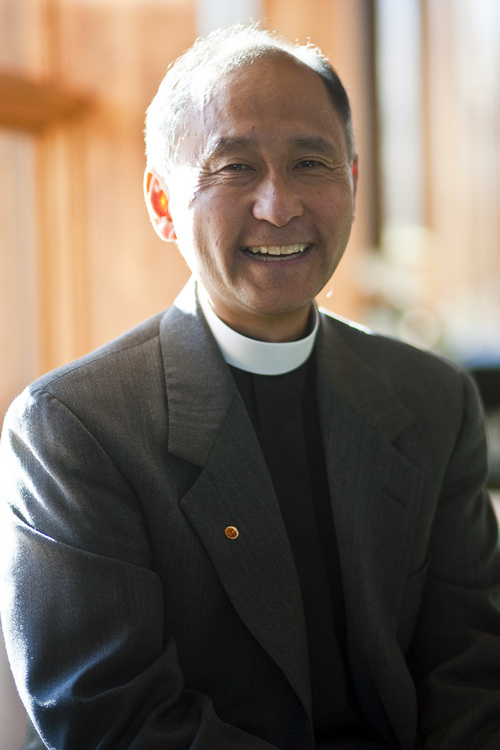This is an archived article that was published on sltrib.com in 2014, and information in the article may be outdated. It is provided only for personal research purposes and may not be reprinted.
It's been three months since the first same-sex couple legally married in Utah. As the bishop of the Episcopal Diocese of Utah, I gave thanks that so many were finally able to share in the joy of marriage. As we know, the court put a temporary hold on the marriages. A short time later, I found the sad task to pray that God's compassion will help sustain them as the state suddenly judged their loving unions as unworthy of recognition.
It is my conviction that the bond of love is God-given, therefore it is an issue of prayer and faith. Many of the voices that have been raised from the religious community have spoken against marriage equality. They speak from deeply held religious convictions. I understand this. I do the very same thing, but speak for marriage equality.
I want the gay and lesbian children of God who joined in marriage, their friends, their families, and others waiting for marriage to know they remain in my heart and prayer. I want them to know as we approach the time for further court decisions that they are not alone in their quest for equality.
The issue of marriage equality is simply one of equality for all of those created in the image of God, and in my belief that is everyone. Opponents have labeled it a state's right issue, an economic issue of benefits, and somehow made it out to be a issue about children. They have avoided the word equality.
Are we afraid of equality? Same-sex marriage is just one in a series of recent issues where we debate all but the fundamental issue of equality. It joins Medicaid expansion, which instead of offering the impoverished equal access to our medical system, becomes an issue of not accepting federal funds to protect the deficit (an issue we don't seem to care about when we accept highway funds).
It joins immigration, which is seldom discussed as an issue of equality for God's children trying to better their families. Instead, immigration has become an issue of everything from "English only" to laws about driver's license renewal procedures. The history of all social justice legislation is pretty much the same. The debate is spun around every other word but equality.
When I attended public school as a child, we began each day standing at attention, hand over heart, and saying the Pledge of Allegiance, which ends with the words, "and justice for all." I was deeply formed as an American by this daily ritual. Our Legislature starts every session with the pledge.
And that leads us back to the debate over marriage equality, which again seems to have little to do with equality in today's debate. It is not a question of state's rights, the economy, or even a philosophical debate over the love of children. It is about whether or not we believe that there should be "justice for all" of God's children.
Additionally, in pastoral care, I have seen where a man and woman, a single parent, an LGBT couple, a grandparent and other guardians have loved children equally.
Let us embrace that word equality. It brings us one step closer to what I believe is the Lord's work. It brings us one step closer to where we all treat each other as God's gift in His own image.
I pray for the courts, the Legislature, and most of all for my brothers and sisters in Christ, that their marriages of both same-sex and of man and woman will be blessed and recognized as equally sacred.
The Rt. Rev. Scott B. Hayashi is bishop of the Episcopal Diocese of Utah.



